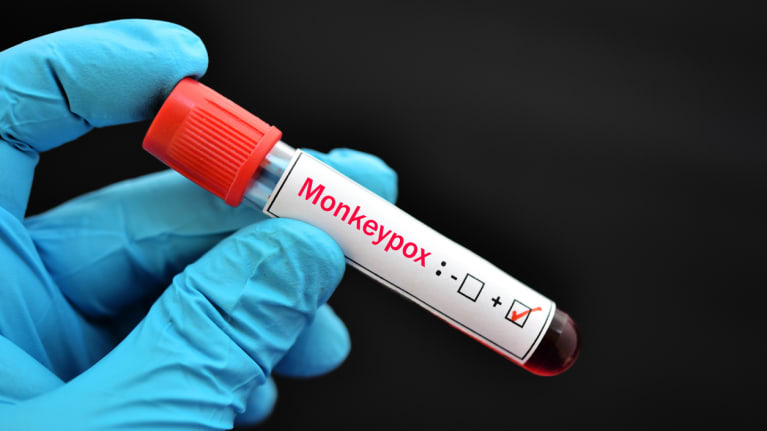

?Like many illnesses, monkeypox comes in a range of severity and symptoms. Some cases are severe enough that an employee may need to quarantine away from co-workers and customers for several weeks. Managers and HR professionals need to be prepared to answer questions about taking a longer-term leave for a monkeypox infection.
“Generally speaking, employers should allow employees who contract monkeypox to isolate per U.S. Centers for Disease Control and Prevention (CDC) guidelines to protect their other employees and customers [and] clients from contracting the virus, as well,” said Aymara Ledezma, an attorney with Fisher Phillips in Los Angeles.
When the recovery is likely to take two or three weeks, there are several leave options to consider. Depending on the state and the employee’s condition, paid leave might be required.
“It depends,” said Amy Epstein Gluck, an attorney with FisherBroyles in Washington, D.C. “Many employers are in states that have mandatory paid or unpaid sick leave, and many employers simply provide a certain amount of paid or unpaid sick leave in their employee handbooks. Employers can allow employees to use vacation or paid time off leave, too. The FMLA [Family and Medical Leave Act] is possible, if the employee is eligible, and the employer employs 50 or more within a 75-mile radius. Short-term disability is an option, as well.”
Employers can always choose to provide more paid or unpaid leave than required by law.
Monkeypox Symptoms and Time Frame
Monkeypox can produce flu-like symptoms—fever, chills, swollen lymph nodes, exhaustion, muscle aches and headaches—followed by a rash or lesions on the face and limbs, according to the CDC. Monkeypox symptoms usually start within three weeks of exposure to the virus. If someone has flu-like symptoms, they will usually develop a rash one to four days later. The illness typically lasts two to four weeks, the CDC reports. The World Health Organization and the U.S. government recently declared monkeypox a public health emergency.
Depending on the type of job, some employees with monkeypox may be able to work from home for a couple of weeks until their symptoms clear up. Other employees may not be able to work at home because their illness is too severe or their job duties require them to be present at the workplace.
Consider ADA Rules
When the symptoms are bad enough, monkeypox could legally be considered a disability under the Americans with Disabilities Act (ADA).
“The employee may be entitled to take sick leave pursuant to state law or an employer’s policy,” Ledezma said. “For longer-term absences, the employee’s symptoms may be severe enough to be a serious health condition under [the] FMLA. Even if an employee doesn’t qualify for FMLA, employers may have an obligation to reasonably accommodate an employee under the ADA or similar state laws.”
Information about a person’s symptoms, diagnosis or vaccination status is subject to privacy rules under the ADA. “It’s not necessary to share the reason for an employee’s leave of absence. It can simply be noted that the employee is out on a medical leave of absence,” Ledezma said. “Any medical records, such as certifications from health care providers, should be kept confidential and in a separate medical file, not with the employee’s personnel file.”
In addition, “HR professionals should consider minimizing data retention, since the ADA requires employers to keep all medical information confidential,” Epstein Gluck advised. “There are also state privacy laws that may play into this analysis, too.”
The ADA requires employers to engage in an interactive process with the employee to discuss possible accommodations, which an employee with monkeypox might need.
“The employer should communicate with the employee to determine if there are reasonable accommodations it can provide without undue hardship to the business,” Epstein Gluck said. “Remote work and/or paid or unpaid leave for a certain period of time may be a reasonable accommodation that an employer can provide to an employee who must isolate while symptomatic. I cannot say enough about the importance of continuing to engage in the interactive process. Employers do not want to drop the ball on continuing to engage in the interactive process.”
[SHRM members-only how-to guide: How to Handle an Employee’s Request for an ADA Accommodation]
The FMLA gives eligible workers up to 12 weeks of unpaid, job-protected leave. The employer can choose to offer compensation during part or all of that leave.
In handling a leave of absence, be careful to avoid unequal treatment or discrimination against workers who identify as gay or bisexual. “Since it’s been determined that monkeypox mainly affects men who have sex with other men, I think discrimination, harassment or retaliation based on sexual orientation—in violation of Title VII [of the Civil Rights Act of 1964] or the ADA and state human rights laws—must be top of mind,” Epstein Gluck said. “Ensure that policies reflect these nondiscrimination provisions and that HR investigates any concerns.”
“The same protections should apply for an employee needing time off due to monkeypox as with any employee with a disability, illness or medical condition,” Ledezma confirmed.
Employers should train supervisors regarding how to properly handle unusual requests for leave. “Rash management decisions regarding an employee’s unusual request for time off due to illness creates a risk of discrimination claims or claims under the ADA and similar state laws for employers,” Ledezma said.

